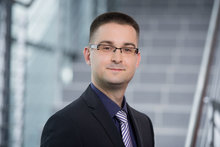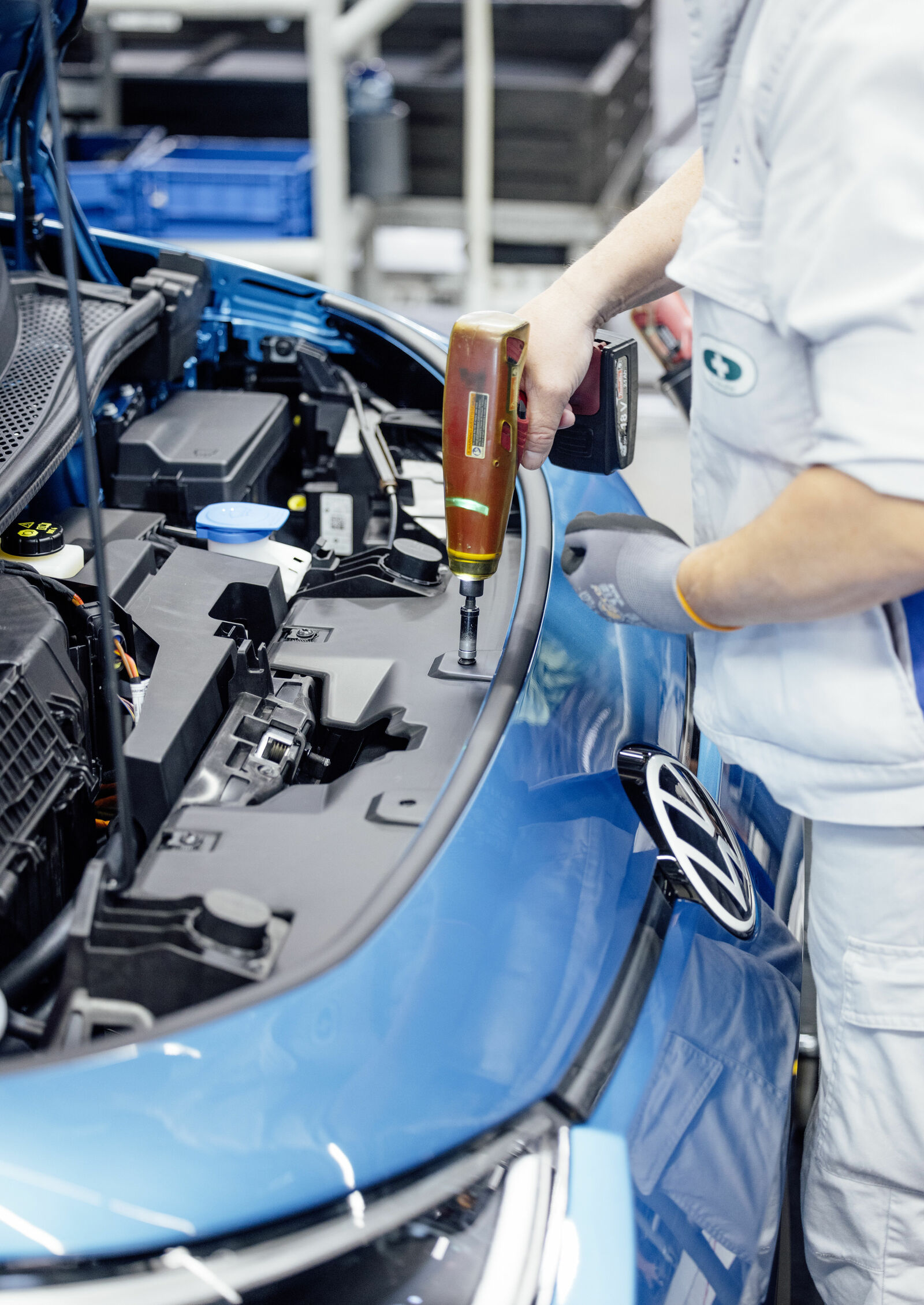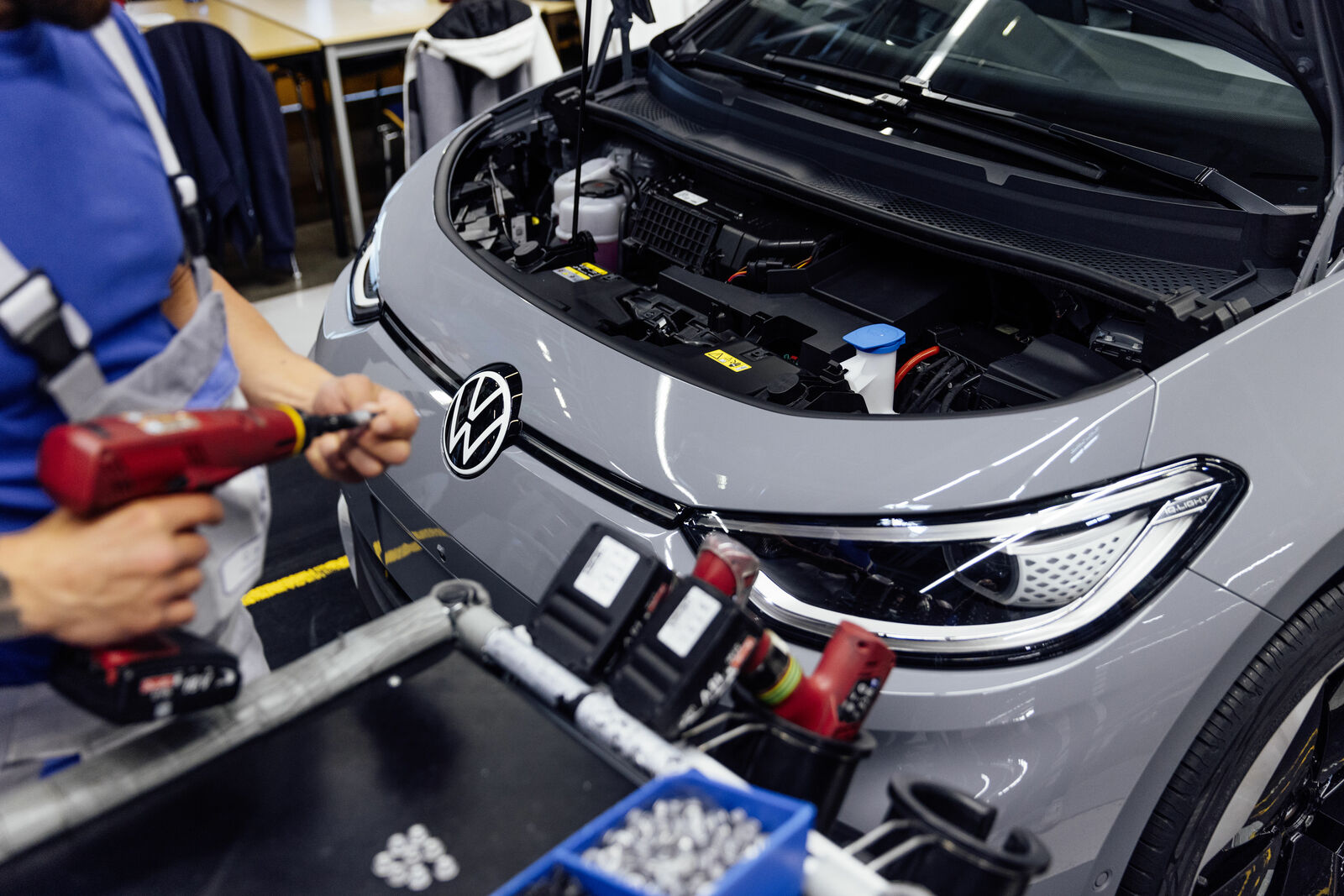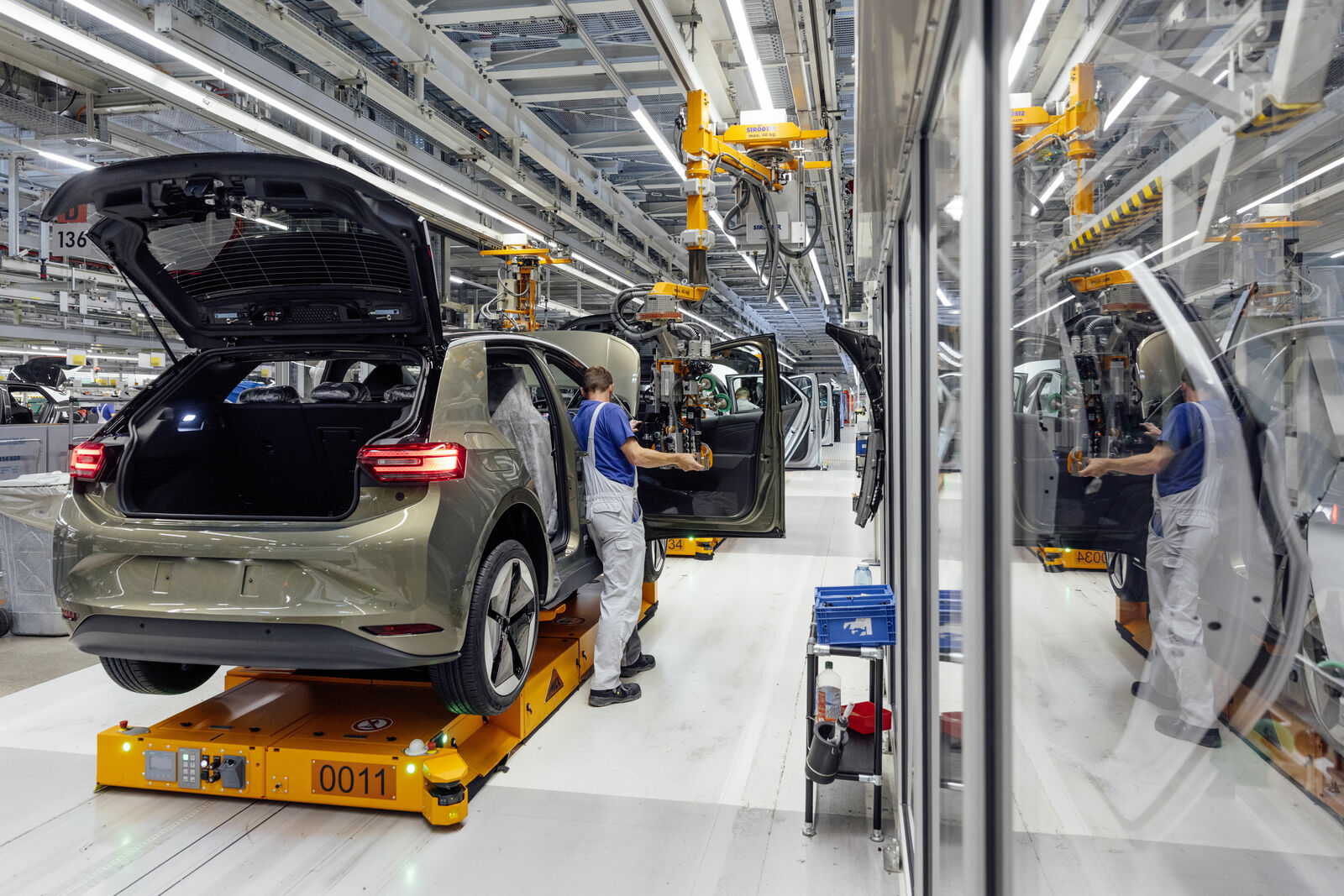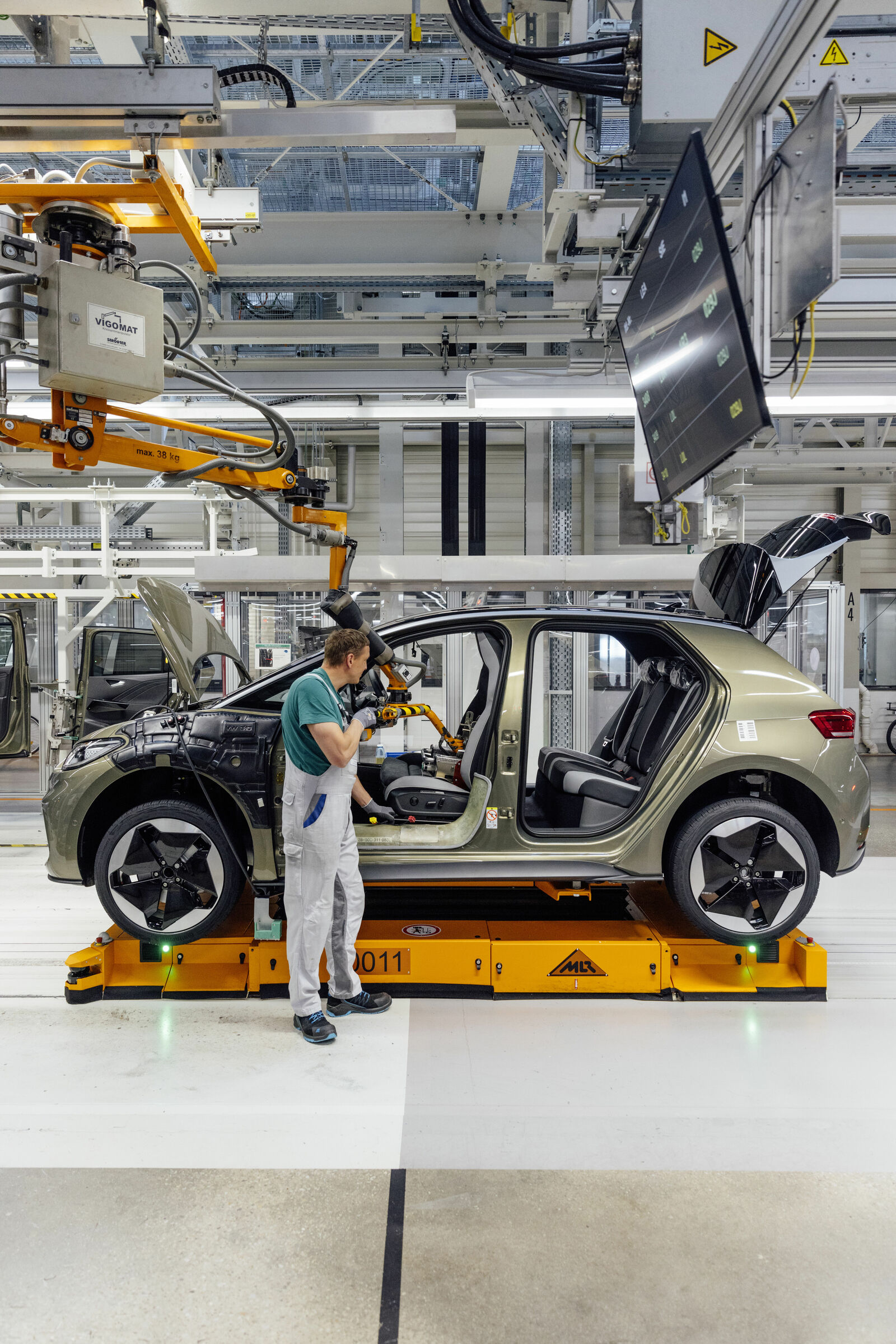| Area: | 1,800,000 m2 |
| Production: | 204,000 vehicles, 11,100 luxury bodies (as of December 2024) |
| Models: | Volkswagen ID.3, ID.4 and ID.5, Audi Q4 e-tron and Sportback e-tron, and Seat Cupra Born; bodies: Bentley Bentayga and Lamborghini Urus |
| Employees: | 9,200 permanent staff (incl. work-study degree students and vocational trainees; as of December 2024) |
Volkswagen Sachsen GmbH
Zwickau Plant
Information for the Press
Plant
The Zwickau vehicle plant covers a total area of 1,800,000 m², corresponding to 252 soccer pitches.
Production
The plant at Zwickau produces only all-electric vehicles such as the Volkswagen ID.3, ID.4 and ID.5, the Audi Q4 e-tron and Sportback e-tron, and the Seat Cupra Born. The start of the ID.5 production in January 2022 completed the Zwickau plant's transformation into a multi-brand location for electric vehicles.
The last combustion vehicle was produced on 26 June 2020 – signalling an historic milestone. Around 204,000 vehicles were produced in 2024. Since the plant was founded in 1990, almost 7 million vehicles have rolled off the production lines. Zwickau is playing a key role with the start of production of electric vehicles. For the first time, a large car factory has been completely re-equipped for electric mobility for a total of 1.2 billion euros. The Zwickau plant produces six electric models for three Group brands. Zwickau also manufactures the bodies for the Bentley Bentayga and Lamborghini Urus.
Environmental protection and energy management
The integration of environmental protection in all business and decision-making processes is a key element of strategic decisions at Volkswagen Sachsen GmbH. Production processes at the Zwickau site are continually optimised to ensure that production is as environmentally compatible as possible and to conserve natural resources. Efforts focus in particular on the reduction of energy consumption and the use of green energy, and, as such, the reduction of carbon dioxide emissions at the plant. Other key elements are the reduction of production waste and industrial drinking water consumption.
The use of green electricity improves the carbon footprint of the six MEB vehicles - in relation to the production phase alone - by well over 100,000 tonnes of CO2 per year. The environmental impact of a vehicle produced in Zwickau is now over 40% lower than in 2010.
Spacious environmental compensation areas and orchards have been established on and around the site of the Zwickau vehicle plant. Two streams near the plant have been restored to a near-natural condition over a length of 3.3 km and now offer ideal habitats for a wide variety of fauna. With a pilot façade greening project, the plant was trialling the effects of natural air conditioning, with a method that also promotes biodiversity. Furthermore, the factory was also increasing its procurement of local green solar power by way of regional cooperation agreements in order to complement its already comprehensive supply of renewable hydro power. As well as being used for production processes, it can also be used to charge electric vehicles via energy stores from second-life vehicle batteries – to reflect a fully sustainable business.
Plant manager
Danny Auerswald holds a degree in industrial engineering (TU Dresden) and started his career in production and logistics at Volkswagen in 2013 after five years at the management consultancy Volkswagen Consulting. For three and a half years, he was an advisor to Volkswagen Group and brand board members Michael Macht and Thomas Ulbrich. In August 2016, Auerswald, who was born in Lichtenstein (Zwickau district), took over as Plant Manager at the Pekan site in Malaysia. There, he was responsible for the production of the Passat, Tiguan, Polo, Vento and Jetta models. After four years in Pekan, his first professional station followed at Volkswagen Saxony: from 2020 to 2022, Danny Auerswald worked as Site Manager of the Transparent Factory in Dresden. Since 1 July 2024, he has been Chairman of the Board of Management and Managing Director Technology and Logistics at Volkswagen Sachsen.
About Volkswagen Sachsen GmbH
The founding of Volkswagen Sachsen GmbH in December 1990 marked the launch of an ambitious project by Volkswagen AG to establish a competitive production facility for Volkswagen vehicles and engines in one of the most traditional regions of the German automotive industry. In addition to the temporary use of existing facilities at Zwickau and Chemnitz, which Volkswagen fully modernised, two new manufacturing facilities were built for vehicle and engine production.
The Gläserne Manufaktur in Dresden was inaugurated in 2001. Automobilmanufaktur Dresden GmbH (Gläserne Manufaktur) was merged with Volkswagen Sachsen GmbH in 2014. Volkswagen Sachsen GmbH now includes the Zwickau vehicle plant, the Chemnitz engine plant and the Gläserne Manufaktur in Dresden. Volkswagen Sachsen GmbH has a workforce of around 11,500 employees (including Volkswagen Training Institute). Roughly 98 per cent of the employees have industry-related vocational training, a master craftsman’s certificate or a technical college or university degree. The average age is around 45 years and women currently account for 12.7 per cent of the workforce.
Danny Auerswald is Chairman of the Board of Management of Volkswagen Sachsen GmbH with responsibility for Technology and Logistics. The Management Board also includes Professor Thomas Edig (Human Resources and Organisation) and Lukas Folc (Finance and Controlling).
Photos
Media contact
